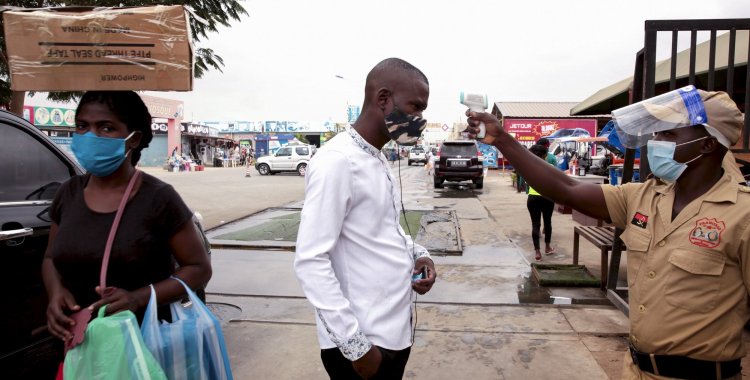The amendment to Presidential Decree No. 280/21 on Public Calamity, which has been in force since 30 November, was presented last Thursday by the Minister of State and head of the Military House of the President of the Republic, Francisco Furtado.
Francisco Furtado said that the country's epidemiological situation has been worrying since the second half of this month, confirming that Angola is facing the fourth wave of the SARS-COV-2 pandemic.
According to Francisco Furtado, the marked evolution of positive cases over the past two weeks, given the observed pattern of transmission of covid-19, indicates that the community circulation of the Ómicron variant is probably present, awaiting the results of the analyzes in processing in international reference laboratories.
In this sense, continued Francisco Furtado, the executive decided to adopt more restrictive measures for the functioning of public and private services, social facilities, collective transport and other activities during the period of the Public Calamity situation.
The government official stressed that the great concern has to do with accelerating the increase in the number of confirmed cases of covid-19, "whose levels and speed of transmission threaten to collapse the national health system and other systems of basic services essential for the functioning of the society as well as economic activities".
For access to commercial establishments, restaurants, places of cultural, recreational, religious and political party activities, as well as organized and duly authorized civic events accompanied by public order forces, it is mandatory to present the vaccine certificate with its doses or SARS-COV2 test performed 48 hours earlier.
The same requirement is made for access to tourist establishments and local accommodation, weddings, baptisms, requests and similar events, corporate events, cultural shows, sports venues, restaurants, casinos and New Year's Eve parties in any space, private or public.
The decree also exempts people over 60 years of age, with chronic at-risk diseases, pregnant women and mothers with children under 12 years of age from face-to-face work, promoting telework in all public and private institutions.
The document also makes the payment of post-disembarkation tests mandatory at Luanda's international airport, keeping the national borders closed, except for the entry and exit of the country for the purposes of the return of resident national and foreign citizens, official travel, humanitarian aid and medical emergencies.
From January 1st, entry is allowed for citizens from India, which was temporarily suspended, and health control measures established at the access points of land, sea and air borders must be observed.
By remote means, it is also mandatory to fill out the travel registration form for national and foreign citizens who wish to enter Angola.
With regard to quarantine and isolation, all citizens from outside the country are subject to home quarantine for up to 14 days, with the exception of those who have complete immunization and negative test against covid-19, except for citizens from countries with circulation of the Ómicron variant, being subject to institutional quarantine people who test positive after disembarkation.
With regard to classes, teaching activities are still authorized, interspersing face-to-face and tele-teaching in all public and private educational establishments, with national federated sporting competitions and access to gyms, beaches and swimming pools being prohibited.
Access to the restaurants is also shortened from 6:00 am to 4:00 pm.
These measures came into effect on Friday and will remain in effect until 15 January.







